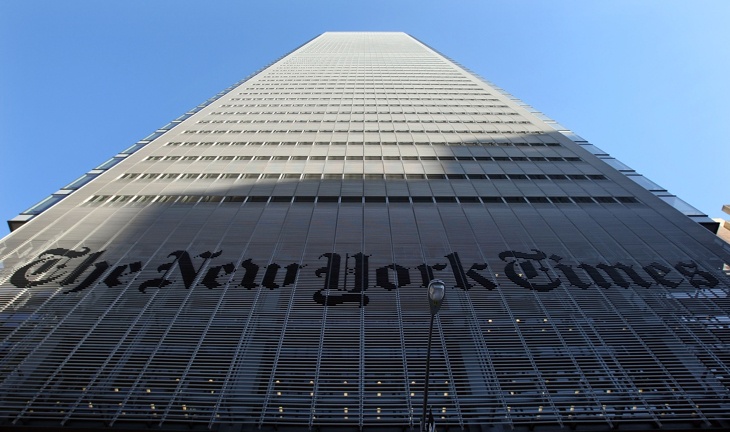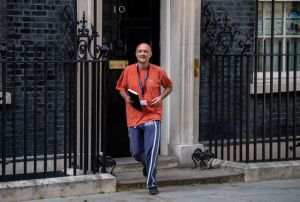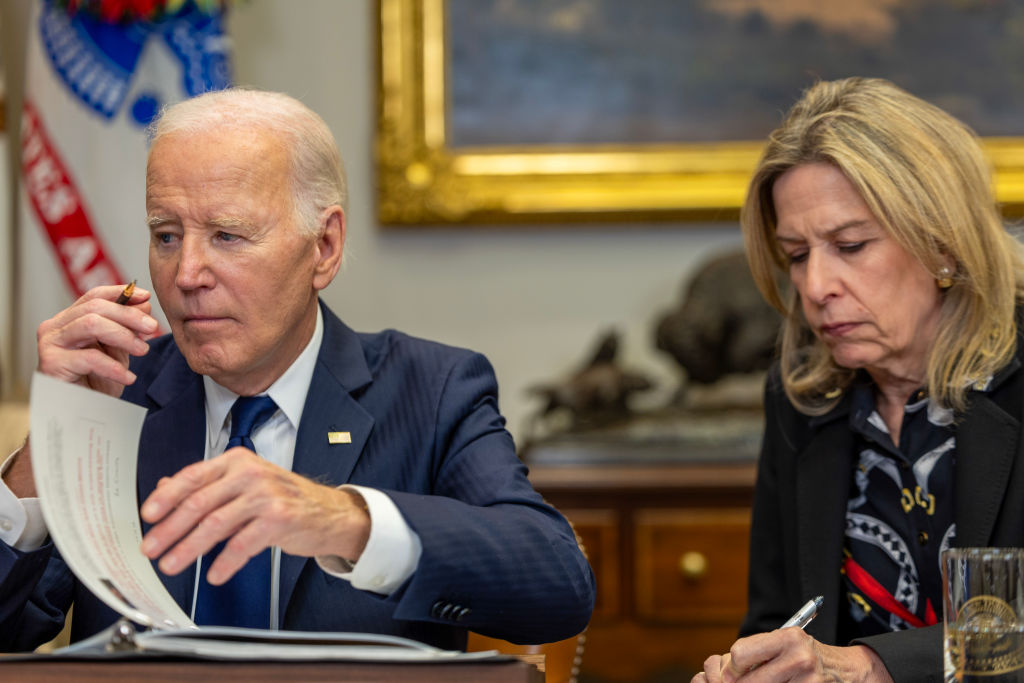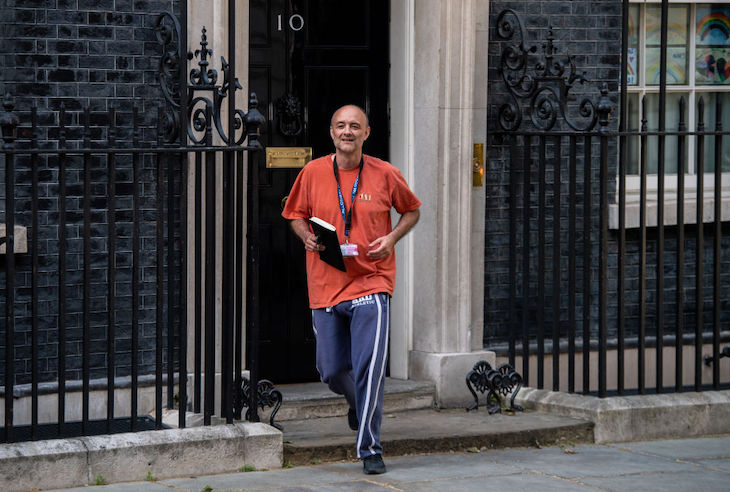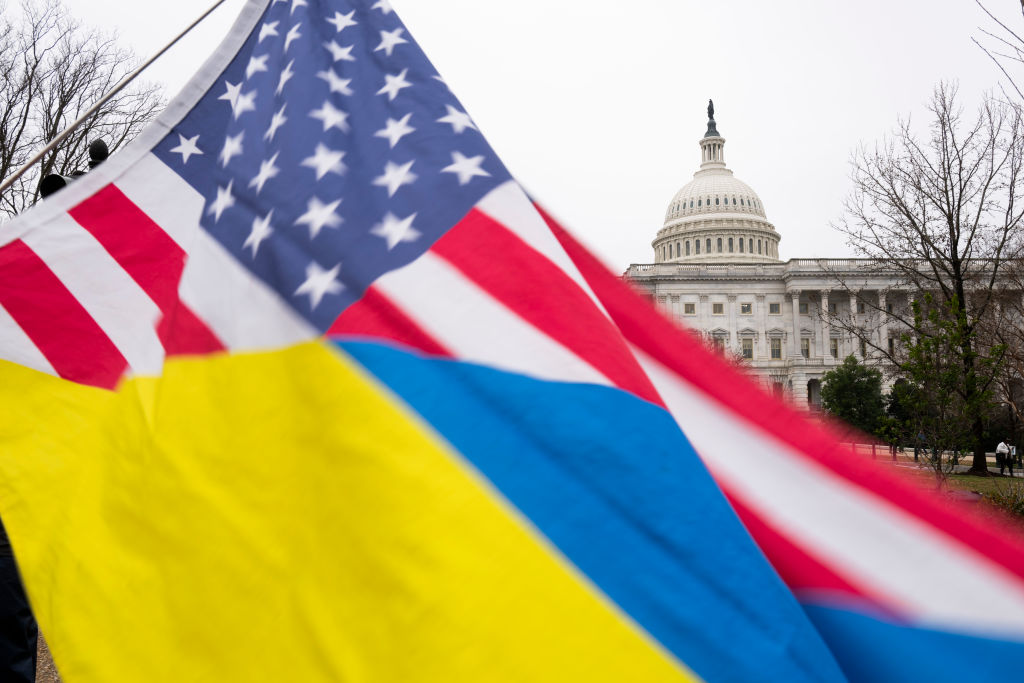When Mark Thompson, a Briton, took over as CEO of the New York Times in November 2012, he was under a dark cloud. He’d just served as Director General of the BBC, and the corporation had been accused of covering up the sex crimes of one of its biggest-ever stars, the late Jimmy Savile.
Ever keen to demonstrate objectivity, the Times ran an opinion piece a few days before Thompson took over, asking whether he was really the right man for the job. ‘Since early October,’ wrote columnist Joe Nocera, ‘all anybody has asked about Thompson are those two most damning of questions: what did he know, and when did he know it?’
That’s precisely the sort of objectivity that the New York Times could desperately do with now, especially when it comes to reporting on Britain. Nearly six years after Thompson’s arrival, all sense of balance seems to have disappeared from its coverage of the United Kingdom — and of Brexit in particular.
If the BBC is often accused of anti-Brexit bias, it stands as a model of reason compared with the New York Times, which has of late been pumping out the sort of coverage that many anti-Brexit BBC editors and reporters would produce were they not constrained by impartiality demands. ‘From one crisis to another, Brexit-torn Britain stumbles,’ read a headline from March. A feature about Grimsby, published in April, began with the headline: ‘In Brexit vote, town’s nostalgia for seafaring past muddied its future.’
While much of the New York Times’ coverage of Brexit Britain has been unrelentingly negative, there have been occasional outbreaks of wishful thinking. ‘Could the UK vote again on Brexit?’ asked reporter Stephen Castle on 21 April. ‘The prospects are rising,’ he said, before presenting the evidence. This amounted to a quotation from a man who regretted voting leave and a lengthy quotation from Lord Adonis about why he thought the chances of a second referendum were ’30 – 40 per cent’. Castle then claimed there was a ‘growing cohort convinced they can right what they regard as a terrible mistake’. What the piece failed to admit is that there is scant evidence that the majority of British voters have changed their minds. It also avoided mentioning the fact that if there were a second referendum, it would very likely produce the same result.
This week, the New York Times revealed its hostility to Britain once more. The paper’s European economics correspondent, Peter S. Goodman, had been sent to report from the town of Prescot in north-west England. He described his piece — based on a walk through the town — as a ‘tour of the casualties of Britain’s age of austerity’. The leisure centre has been razed, he said, eliminating the local swimming pool. The library has been closed and turned into a fancy private home. The local museum had ‘receded into the town’s history’ and the ‘police station has been shuttered’. It is a depressing picture of ‘austerity Britain’. Or it would be, if it were true. Much of it isn’t. Where it is true, the reporting is skewed towards bad news while ignoring the good.
Nobody denies Prescot has its problems. Like many northern English towns, it has suffered in the post-industrial age. But Prescot has enjoyed a boom in public investment, which somehow passed Goodman by. The leisure centre was replaced in 2011 with a £16 million modern facility containing two swimming pools. The old police station was closed but only because a brand-new station, shared with the fire service, opened in January. The library and museum have similarly been combined in a new building, which opened in 2012. To cap it all, a new £20 million theatre will soon open. Goodman couldn’t be bothered to report any of this. Why? Because it didn’t fit with the NYT’s vision of post-Brexit Britain.
Goodman’s dispatch could be dismissed as an egregious bit of bad reporting, but it fits a disturbing pattern. Ever since Britain voted to leave the European Union, the Gray Lady — as the paper is known, thanks to its pompous and earnest tone — has become relentlessly critical of the UK. If you were to read only the NYT, you’d think there was little hope for backward, bigoted Britain.
Even good news is turned to bad. When Sajid Javid was made Home Secretary in April, becoming the first person of Muslim heritage to hold one of the great British offices of state, the paper opined, in an above-the-fold headline on the front page of the international edition: ‘A new face can’t mask a racist heart.’ The page-one opinion piece by Maya Goodfellow, a freelance writer, focused on Javid’s race and decried the ‘cruel’ and ‘inhumane’ immigration policies of the Conservative government. It did not note that immigration is still running at record levels.
The ‘racist’ Britain smear represents the climax of the paper’s relentlessly negative portraits of Britain in its Brexit coverage. ‘Rarely has a vote in one country attracted as much active kibitzing abroad as Britain’s approaching referendum on whether to stay in the European Union’, a Times editorial declared on 20 April 2016, two months before the EU referendum. When Brits had the temerity to vote for Brexit, the NYT made it its mission to prove its editorial point.
An ancient nation, according to the NYT, is being destroyed. In April, Beth Gardner wrote a feature titled ‘U.K. Universities Face Uncertainty as Brexit Looms’. It quoted an academic who claimed that Brexit could put off ‘not just Europeans’, but applicants from places like India, China and Malaysia, for whom ‘the general sense that Britain has become a less welcoming and hospitable place for foreigners is quite palpable’. An Oxford professor was quoted as saying Brexit was the universities’ ‘single biggest challenge’ ‘since the Second World War’. But dig past the hyperbole and you discover that, so far, application numbers ‘are holding up’. In fact, they have risen. While applications from EU citizens fell in the first year following the referendum, this year they have rebounded. In 2018, for the first time, UK universities received more than 100,000 applications from non-UK students.
A feature by Katrin Bennhold, published in November, was titled ‘Where Brexit Hurts: The Nurses and Doctors Leaving London’. ‘Uncertainty is one reason that some European health care professionals are either leaving, or thinking about leaving,’ it declared. ‘In the year following the referendum, almost 10,000 quit the N.H.S. The number of nurses from other European Union countries registering to practice in Britain has dropped by almost 90 percent.’ Only later did the article admit that while 10,000 EU citizens left jobs at the NHS, an even greater number had joined, giving a net rise in EU citizens employed in Britain’s state healthcare provider. As for the 90 percent drop in applications for nurses, the piece failed to mention another factor: new, tougher language tests that had made it hard even for some native English speakers from Australia and elsewhere to qualify to work in the UK. By the time the piece was published, the tests had been eased.
On and on it goes. A NYT headline on 17 October 2017 proclaimed ‘U.K Reports Big Rise in Hate Crime, Citing Brexit and Terrorist Attacks,’ leaving out the fact the report stated that recent increases in hate crime ‘have been driven by improvements in police recording’. That misleading reporting seems to have led directly to a stunning Times feature on 9 November 2017, ‘In Brexit-Era London, a Mosque Sits Between Two Types of Hate’. The two types of hate? ‘Brexit and terrorism’.
These are just some of the newspaper’s accounts and analysis of the new Britain. Or as the Times’ writers like to call it, ‘Little England.’ (‘From Great Britain to Little England’ was one headline in the days after the Brexit vote.)
A ‘more inward-looking nation’ has become, according to the NYT, ‘an introverted irrelevance’. This particular charge comes from a Sunday Review ‘news analysis’ published on 5 November 2017, ‘No One Knows What Britain Is Anymore’. It is a sort of swan song — or parting shot — from Steven Erlanger, who became the Times’ chief diplomatic correspondent after having, as the article’s byline notes, ‘just completed four years as London bureau chief’. ‘I’ve lived and worked for nine years in Britain, first during the Thatcher years and then again for the last four politically chaotic ones. While much poorer in the 1980s, Britain mattered internationally. Now, with Brexit, it seems to be embracing an introverted irrelevance.’
Erlanger didn’t mention that Britain is a permanent member of the UN Security Council, the fifth- or sixth-largest economy in the world, a nuclear weapons state with a world-class military, a member of the world’s most powerful intelligence agreement, and the second-most-important member of NATO. None of these facts will change when Britain withdraws from the EU.
Erlanger was writing an ‘analysis’, and he is perfectly entitled to say what he wants. The New York Times is also of course entitled to take an editorial stand against Brexit. Such a position is perfectly reasonable. But for the paper to skew its news coverage of one country, to present so many unbalanced sets of facts as impartial reportage, is just bad journalism. The paper’s recent reporting on Britain completely undermines the claim that it separates its opinion section from its news reporting.
‘A new face can’t mask a racist heart,’ to quote again the New York Times’s reaction to Sajid Javid’s appointment as Home Secretary. The NYT has developed its own blind prejudice against a particular group of foreigners: the British. They are — in the New York Times’ eyes — a country of boneheaded bigots.



